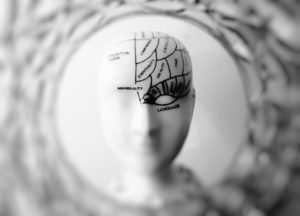Substance abuse is an equal opportunity issue, meaning that it does not discriminate against anyone based on race, gender, or even age. As it stands, young adults make up a decent majority of those who abuse substances.
These substances often range from alcohol to trendy drugs such as Molly. Either way, substance abuse in the young adult population is just as dangerous as it is for people of any other age, as it produces serious, life-threatening side effects. Therefore, it is crucial that young adults get into Newport Beach young adult rehab to begin reaping the benefits of this type of program.
What Makes a Young Adult Program Different?
Young adults often require a different approach when it comes to rehab, as they are at a different point in their lives. This approach, while understanding and supportive, is often geared around the specific needs of young adults. At Newport Beach young adult rehab, some of the many benefits can include the following:
- Active recovery – Young adults are less likely to want to stay stagnant in a room where they discuss their feelings on a regular basis. Since they tend to be more active, those engaging in Newport Beach young adult rehab are generally involved in exciting experiential therapies such as equine therapy, wilderness therapy, and more. This allows them to actively engage in their recovery.
- Ending use early – Getting into Newport Beach young adult rehab is incredibly beneficial, especially as most individuals who enter into this type of program are still in the early stages of substance abuse. This means that they can utilize the many methods of recovery offered at Newport Beach young adult recovery to end their use before suffering deadly consequences.
- Enhancing the future – The continued abuse of substances by young adults can drastically and negatively impact their future. At Newport Beach young adult rehab, young adults can learn how to develop coping skills designed to improve their communication, understanding and emotional regulation. These skills will not only help them cope with their substance abuse problems, but also in other areas of their lives.
At Newport Beach young adult rehab, young adults looking to recover from substance abuse can benefit from this program through active recovery, which keeps them both engaged and invested in their transformation. In addition, individuals at Newport Beach young adult rehab can also end their use early through this type of program, as well as enhance their future by developing coping skills that will positively impact them as they move through their lives.
The Importance of Newport Beach Young Adult Rehab
Those who are struggling with substance abuse often do not know how to stop themselves, however by entering Newport Beach young adult rehab, they can get the support needed to do so. If young adults choose to ignore their needs for rehab despite the many benefits that can come from it, they are running the risk of facing serious physical and psychological issues that can cause irreversible and/or deadly effects in the future.
Overview of Addiction’s Effects
Addiction and drug abuse or misuse don’t discriminate on age, gender, social class, race, or religion. It sneaks up on anyone. According to Substance Abuse and Mental Health Services in 2017, there was only 6.9 percent, out of 19.7 million United States Citizens, of people ages twelve and older diagnosed with a substance use disorder who received treatment from a facility specializing in substance abuse. Places like Northbound Treatment Center, known for its high success rate, should be utilized in these cases.
What is Addiction?
Addiction is a disease that affects the brain and body function within a person. Generally, it is chronic and wreaks havoc on relationships, both intimate and associative. Meaning those relationships like family, friends, coworkers, neighborhoods, and schools. The general symptoms include loss of control, unable to quit using even with the consequence, increased tolerance, and withdrawal symptoms.
Addiction isn’t broken down into one cause. There are several factors that play a hand in causing addiction to occur. Due to these risks, or factors, some people are more likely to develop an addiction than others. Although addiction doesn’t discriminate it does impact some more than others due to their biology, environment, or their development.
Risk Factors
Within a person’s genetic makeup there is essentially a map of what a person is predisposed to possibly trigger due to life’s events. For some, there is a possibility for heart conditions or autoimmune diseases. For others, there is the risk of addiction or mental health problems. This in part is a huge factor in the likelihood of a substance abuse disorder to occur.
A person’s mental health plays a huge role in the likelihood of them being drawn to various substances. Out of 19.7 million United States citizens in 2017, via the National Survey on Drug Use and Health (NSDUH,) 8.5 million also suffered a mental health disorder in addition to a substance use disorder. This is known as co-occurring disorders. A person’s mental health vastly impacts their decision process. They don’t always seek professional help and guidance in hopes of calming their demons on their own.
Environment Plays a Role in Substance Use
The environment a person is exposed to and raised in also contributes towards the likelihood of substance abuse. Those raised in a family that abuses or misuses drugs and/or alcohol are more inclined to experiment and become addicted to such substances. The same applies to the friends they make or are exposed to within their life. There are factors that contribute as well such as peer pressure or physical or sexual abuse. There is also stress. Without proper guidance from a parental figure or guardian, the draw to escape life’s challenges can increase greatly.
When both biology and environment combine for young people their critical development stages are impacted. These stages are paramount to their development as growing individuals. During these specific development stages if there is a genetic predisposition and environmental influence towards substance abuse there is a chance of a person’s increased desire to use any variation of substances.
Aside from the biology, environment and development risk factors for substance abuse, there are substances that are available through prescription. Many people that are prescribed medication use them as they are intended. Some, however, can potentially begin misusing their prescription due to chronic pain or due to their experiences with them. The largest age bracket to abuse prescription drugs is young adults. This is in part due to their likelihood to experiment. The common reason for the rampant abuse with young adults is for the feeling of a high or a stimulant for study.
Symptoms of Addiction
Addiction, categorized beneath substance use disorder or substance-related and addictive disorders, has a plethora of symptoms. The main symptom of addiction is a pattern of usage of a specific or a variety of substance(s) causing problems in everyday life. The qualities of life in the day-to-day that may be reduced are those within the social, physical, and psychological categories.
Addiction doesn’t just occur. It comes from a variety of risks mentioned above. However, addiction does not need to be a person’s whole story. With the help of medical professionals, like those in Newport Beach at Northbound Treatment.
Symptoms of addiction or abuse vary from substance. They do however generally have similar symptoms of abuse. The ability to catch the symptoms early, especially in youth or as a young adult can save them from future physiological and psychological health problems.
Psychological symptoms
- Inability to quit
- Those who have become dependent upon a substance find that in their efforts to stop using are incapable of doing so. In some cases this is also a physical symptom due to withdrawal impacts on the body dependent upon the substance being abused.
- Dealing with life’s problems.
- The dependence on the substance, in some cases, occurred to escape from the reality of facing problems.
- Continuity of use regardless of health consequences.
- Substance abuse can potentially cause a variety of health complications. Those that are dependent upon the substance continue to use even though there is a development of a related illness.
- Risk taking
- Obtaining substances, illicit or not, is not always in a safe environment. In some cases, the retrieval of a substance takes place in bad areas of town or involves risky behaviors. There is the potential for behavior to be engaged in that the addicted person wouldn’t necessarily do in the right state of mind. Such as sexual acts, stealing, trading other drugs, or violence.
- Obsession
- Those addicted have become obsessed with the substance. Therefore displaying behaviors associated with obsession. Taking the time and energy to obtain it, use it, and hide it from others.
- Large quantities
- Due to the rapidly increased tolerance of a substance those who have become addicted need a larger dose to feel the effects desired.
Physical Symptoms
- Withdrawal
- The intake of the substance causes fluctuations in the chemical makeup of the body and mind. Once there is a dependence on the substance the various chemical’s levels begin to drop causing physical symptoms. The symptoms vary from substance to substance but they can include bowel issues like diarrhea or constipation, trembling or seizure, heavy sweating, or behavior that is uncharacteristic to the individual like violence or irritability.
- Changes in appetite
- Substance abuse can create a change in a person’s eating habits. Some can cause a larger intake of food like marijuana while others can cause a lack of appetite like cocaine.
- Tolerance
- Like psychological impacts, the physical body also experiences effects needing the increase of a substance due to the increased tolerance.
- Appearance
- During substance abuse or addiction those impacted are likely to show the physical symptoms of their appearance changing. This can occur due to their main objective of acquiring and using the substance. That can include the lack of proper hygiene like bathing or brushing their teeth, clothing in disarray or unclean, weight change, or looking tired.
- Lack of sleep
- Lack of sleep can occur due to using or withdrawal from a substance. Withdrawal can cause insomnia to those impacted. Dependent upon the substance there is the potential for the substance itself to disrupt a person’s normal sleeping habits. Such drugs include ecstasy or cocaine.
- Substance damage or disease
- There are several areas of the body that can be impacted due to substance abuse or addiction. The skin, for instance, can become affected due to lack of proper care, abrasions, or acne due to lack of vitamins. The liver can be damaged or develop disease from the frequency of alcohol consumption. The lungs can develop cancer or respiratory diseases due to smoking substances. The list goes on from there.
Social Symptoms
- Financial
- All substances cost money, some more than others. Those impacted by addiction will make sacrifices to afford their habit.
- Hiding a stash, secrecy, or solitude
- Due to the feeling of guilt and fear of judgment/accusations or being caught people who are dependent upon a substance may hide stashes in various places to keep them from being found. They may spend most of their time alone to use the substance or lie about where they were.
- Excess consumption
- Socially, as with physical or psychological, there is a symptom of greater intake of a substance. In some cases, this can cause overdose triggering a social awareness of the problem at hand.
- Denial
- There is a plethora of people who fall into the substance abuse disorder category that are painfully unaware of their situation. Although they may display physical or psychological symptoms of abuse or withdrawal they will deny the fact they have a substance use disorder.
- Hobby or activity change
- A substance abuse addiction or disorder takes over a person’s life. Meaning they will no longer desire to participate in hobbies or activities they had enjoyed previously. This can occur due to their main objective is using or obtaining the substance or they physically are no longer able to participate.
- Legal
- Not all substances are illegal but almost all substances have the potential to cause legal problems. Smoking tobacco, vaping nicotine, and drinking alcohol are all legal but only to a certain age. Pharmaceutical grade drugs are only legal to those they are prescribed to and consumed as intended. Being caught consuming them before reaching the legal age or without a prescription can cause legal and financial difficulties. Illicit substances that are consumed or injected will and can cause a variety of legal issues and problems.
- Sacrifices
- Although touched on, there will be sacrifices made by those dependent on a substance. The sacrifices can include hobbies, spending time with people that love them, money, or appearance.
Many of the symptoms that are within their own sub-set walk hand-in-hand. Although they have their own serious set of implications they make the detection of a substance abuse disorder easier to catch. Or at least to raise enough suspicion to cause a meeting with a medical professional.
The Risk of Addiction in Young Adults
There are a variety of resources for the prevention of substance abuse for adolescents and young adults. But there are also constant risk factors.
Young adults face key developmental stages like going away to college or career changes. These stages can cause stress due to the pressure of society or keeping up with the fast paced environment of classes.
The stages also imply the removal of common environments. This can cause depression or other mental health struggles. These struggles can place the young adults at risk for abuse and addiction of substances.
Young Adult Substance Abuse Statistics
Young adults experience peer pressure when entering college or university. There are serious impacts on community and on individuals when substance abuse occurs.
The 2017 NSDUH had estimated that 53.6% of full-time college students, 18-22 years old, drank alcohol in a month-long span. 34.8% had engaged in binge drinking. Also, 9.7% of those reported heavy alcohol abuse.
The National Institute on Alcohol Abuse and Alcoholism statistics also has an estimate. They stated that 1,519 student deaths occur yearly due to drinking.
Another statistic provided insight to the amount of assaults that occur due to alcohol consumption. The estimate mentions that around 696,000 assaults happen because of alcohol use. 97,000 of those assaults include sexual assault. Alcohol-related car accidents involving a death in 2017 sat at 29 percent of all fatal car accidents.
Substance Abuse and Brain Development
The brain develops constantly until around the age of 25. When people in this age group abuse substances, it affects their brain’s development.
There could be a tremendous reduction of grey and white matter within different areas of the brain. It could also reduce hippocampal volumes.
These impacts lead to issues in learning and memory, impulse control, and executive and general brain function. Substance abuse can also lead to further mental health issues like depression or anxiety.
The abuse and/or addiction to substances can lead to serious health complications if they remain untreated. Addiction is chronic, meaning an ongoing disorder. But, with the help of treatment, individuals can learn to manage their substance use.
Due to the chronic aspect of substance abuse and addiction, there is a potential for relapse. Young adults have the potential to become addicted due to the misuse of substances but can potentially face relapse later in life if they do develop an addiction. The implications of the substances impacting the brain’s development can create worsening mental health issues. Hence the need for a dual-treatment center.
Newport Beach Northbound Treatment
Our drug rehab Newport Beach location in Orange County California is located right between San Diego and Los Angeles. It’s both a gorgeous and connected location.
Here at Northbound, we can treat patients in all the necessary areas of their lives. From the beginning of detox to the end, we offer support and monitoring. We take the initiative to treat both mental and physical aspects of substance abuse. This promotes further rehabilitation and recovery that lasts.
Young adults can go through gender-specific treatment with private facilities. We also offer beautiful gardens, music rooms, and gyms!
Our facility has shared outdoor spaces for meditation and yoga practice with beach access and nature reserves. All of these amenities can help place anyone impacted by substance addiction or abuse back onto the right track!
We are committed to helping you begin living fully again. Contact us at (866) 511-2458 to find out more about our young adult rehab program. Get a jump start life again.
References:
https://www.drugabuse.gov/publications/drugfacts/understanding-drug-use-addiction
https://www.mayoclinic.org/diseases-conditions/prescription-drug-abuse/symptoms-causes/syc-20376813
Author
-

President, CEO & Founder at Northbound Treatment Network
Paul Alexander is the CEO, President & Founder of Northbound Treatment Network in Newport Beach, California. He believes wholeheartedly in transformational leadership, organizational health and effective, fully integrated substance use disorder and mental health treatment. With over 27 years of experience in behavioral healthcare, Paul has extensive knowledge of “in vivo” treatment modalities, clinical development, operations, strategy, marketing and financial planning. He has been widely recognized for his development of collegiate-based residential treatment programs for students in recovery and authored a research study at The University of California confirming this modality’s effectiveness.
Paul’s comprehensive professional experience, willingness to innovate, and emphasis on organizational health are vital factors in Northbound’s continued success. Paul received his Certified Addiction Treatment Specialist training at Saddleback College in Mission Viejo, CA, and was awarded Outstanding Alumni Service Award in 2002. Paul holds a Bachelor of Arts degree in Criminology, Law and Society, Summa Cum Laude, from University of California, Irvine, and a Juris Doctorate degree from Loyola Law School of Los Angeles. Paul currently serves on The National Association of Addiction Treatment Providers (NAATP) board. In addition, he serves on The Family Recovery Foundation board and The CarePossible board in Orange County; both organizations are committed to raising funds for family recovery and treatment for former military personnel. Paul is in recovery himself and lives in Orange County with his wife Silvana and his two young sons, Noah and Dean.










